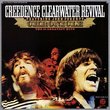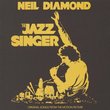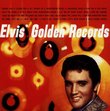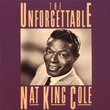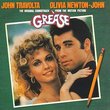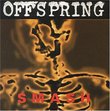| All Artists: Patti Page, Peggy Lee, The Andrews Sisters, Bing Crosby, Billy Eckstine, Anton Karas, Red Foley, Doris Day, Frankie Laine, Nat King Cole Title: Hits of '50 - I Can Dream, Can't I? Members Wishing: 3 Total Copies: 0 Label: Asv Living Era Release Date: 3/27/2001 Genres: Jazz, Pop, Rock, Broadway & Vocalists Styles: Swing Jazz, Traditional Jazz & Ragtime, Vocal Jazz, Easy Listening, Oldies, Vocal Pop, Oldies & Retro, Traditional Vocal Pop Number of Discs: 1 SwapaCD Credits: 1 UPC: 743625535020 |
Search - Patti Page, Peggy Lee, The Andrews Sisters :: Hits of '50 - I Can Dream, Can't I?
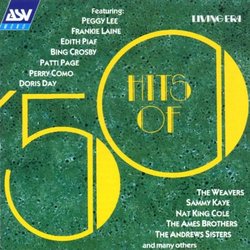 | Patti Page, Peggy Lee, The Andrews Sisters Hits of '50 - I Can Dream, Can't I? Genres: Jazz, Pop, Rock, Broadway & Vocalists
|
Larger Image |
CD DetailsSimilar CDs
Similarly Requested CDs
|
CD ReviewsFine album of great hits from 1950... Matthew G. Sherwin | last seen screaming at Amazon customer service | 06/19/2008 (5 out of 5 stars) "Hits of '50 I Can Dream Can't I? is another excellent installment in this CD series of wonderful hits from days gone by. The artwork is very, very good; and the quality of the sound is absolutely excellent. This is anything but elevator music; and it's sure to bring back many fond memories for people who first heard these songs over the radio. The CD starts with Patti Page doing one of her hits that became one of the staples of her fine repertoire. "The Tennessee Waltz" is a very sweet pop song with a touch of country flavor to it that enhances the natural beauty of this ballad all the more. Patti's voice is as clear as a bell and I love it! "The Tennessee Waltz" makes a strong start for this album. The very famous Andres Sisters also do one of their biggest hits as they perform "I Can Dream, Can't I?" "I Can Dream, Can't I?" highlights the sister act with a fantastic chorus that, this time at least, works very well for this ballad. In addition, "My Foolish Heart" gets the royal treatment from Billy Eckstine; he croons this tune to perfection and it's really very pretty. The Ames Brothers do good on their version of the early rock tune called "Rag Mop." I love that musical arrangement with its harmonica and "Rag Mop" is certainly a major highlight of this album. Is there anything The Ames Brothers couldn't sing? Doris Day follows with a grand version of "Bewitched, Bothered And Bewildered;" many, many men were enchanted by Doris' voice and just one listen to this will tell you why! Doris never sounded better. Nat King Cole does "Mona Lisa" with panache and he never misses a beat; and Teresa Brewer sings one of her signature songs, "Music! Music! Music!" "Music! Music! Music!" has some great melody that is both upbeat and catchy; the keyboard work is very fine indeed. The immortal Edith Piaf also performs her magnificent "La Vie En Rose;' and although there is some surface noise it never truly interferes with this recording. Although "Hoop-Dee-Doo" wasn't Perry Como's favorite style of music, he played along nicely with this tune he does with The Fontaine Sisters is absolutely grand. Patti Page returns to do a wonderful version of "All My Love (Bolero);" this is very well done. The Mills Brothers also sound very sweet; they harmonize and the music fits in perfectly as they do "Nevertheless I'm In Love With You." Great! The album ends strong with "Goodnight, Irene" performed by The Weavers. The Weavers were a wonderful group and they made a lot of sublime music when they worked together. Hits of '50 I Can Dream Can't I? will give you much to be happy about if you get this CD! I am so disappointed that a fine CD like this is currently out of print but maybe that will change as it continues to sell. I highly recommend this CD for people who like music from the early 1950s and people who enjoy classic pop vocals will be charmed by this CD as well. " The Transitional Years From Big Band To R&R Matthew G. Sherwin | 06/12/2008 (5 out of 5 stars) "As the decade of the Fifties dawned, the Big Band sound of the Thirties and Forties had pretty much petered out, and now the focus of the record companies was on individual vocalists or harmony groups. And this volume from ASV Living Era, based in the U.K., provides 25 of the best from 1950. Having said that, what you have to keep in mind is that, while most of the songs presented were huge hits on both sides of the Atlantic, some renditions presented, while perhaps at or near the top in the U.K., were not the top versions in North America. These include: Nevertheless (I'm In Love With You), which The Mills Brothers took to # 4 in the U.S., but finished second to the # 2 by Paul Weston & His Orchestra with vocal by The Norman Luboff Choir; My Foolish Heart, a # 6 for Billy Eckstine, tying him with Mindy Carson's version, but both back of the # 3 turned in by Gordon Jenkins & His Orchestra with vocal by Sandy Evans; Bewitched, a # 9 by Doris Day and one of NINE charted versions, the best of which was an instrumental by Bill Snyder & His Orchestra (# 3) and the best vocal version by Gordon Jenkins with Bonnie Lou Williams; The Old Master Painter, a # 9 by Peggy Lee and Mel Torme, putting them well back of the top versions by Richard Hayes (# 2) and Dick Haymes (# 4); and La Vie En Rose, a distant # 23 in the U.S. for Edith Piaf, far back of Tony Martin's # 9. They also omit a # 1 by one of the few big bands still persevering in 1950, that of Sammy Kaye & His Orchestra who scored with Harbor Lights, with vocal by Tony Alamo. That was one of seven charted versions late that year. But, with one more exception, all the other North American # 1 hits are presented, that being the Guy Lombardo version of "The 3rd Man" Theme (sic). Instead, you get the other # 1, titled "The Third Man" Theme, by Anton Karas. Two other notable omissions, insofar as the U.S. charts were concerned, was the # 2 It Isn't Fair by Sammy Kaye (vocal by Don Cornell), and Tony Martin's # 2 There's No Tomorrow. But, as I say, this is a U.K. outlet after all, and what you get has excellent sound quality, informative liner notes, and a complete discography. Because ASV has been bought out by the Universal Music Group, which has reportedly discontinued distribution of their various oldies compilations, I would suggest you grab a copy while it's still available." Another of ASV's one-year collections, typically good Bruce R. Gilson | Wheaton, MD United States | 08/26/2004 (4 out of 5 stars) "As is typical of ASV, the collection does a pretty good job of selecting major hits of the year. I would, perhaps, have chosen Dinah Shore's version of "Dear Hearts and Gentle People" instead of Bing Crosby's, but both were authentic hits. One quibble I have: I'm not sure why they included Edith Piaf's "La Vie en Rose" here, as it was recorded in 1946; there was a version that charted in 1950, but it was done by Tony Martin.
Still, despite a small number of that sort of problems, I think ASV's one year collections seem better than most others in representing the year they document. And this one is typical." |

 Track Listings (25) - Disc #1
Track Listings (25) - Disc #1

